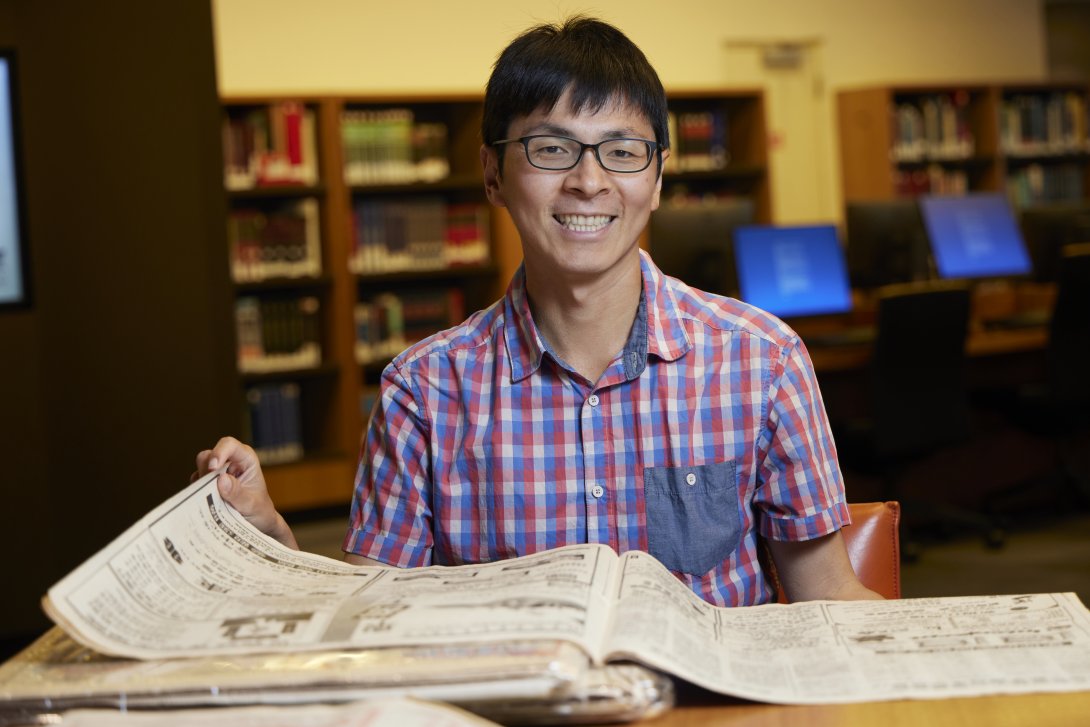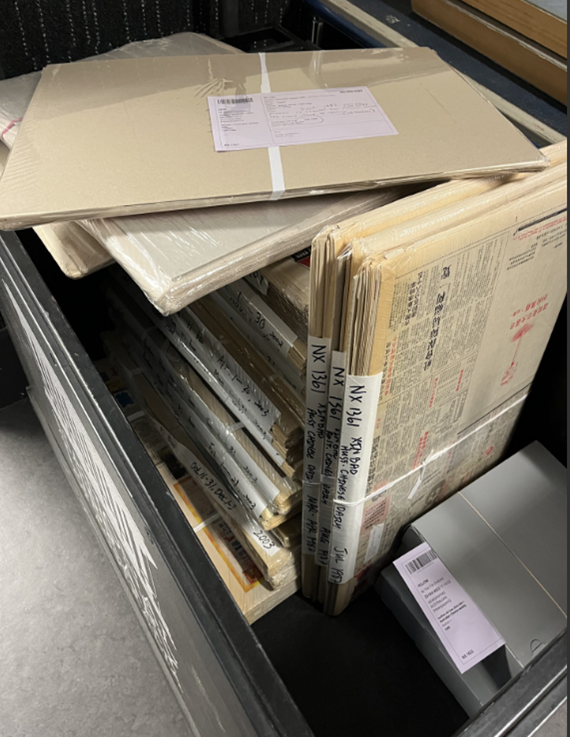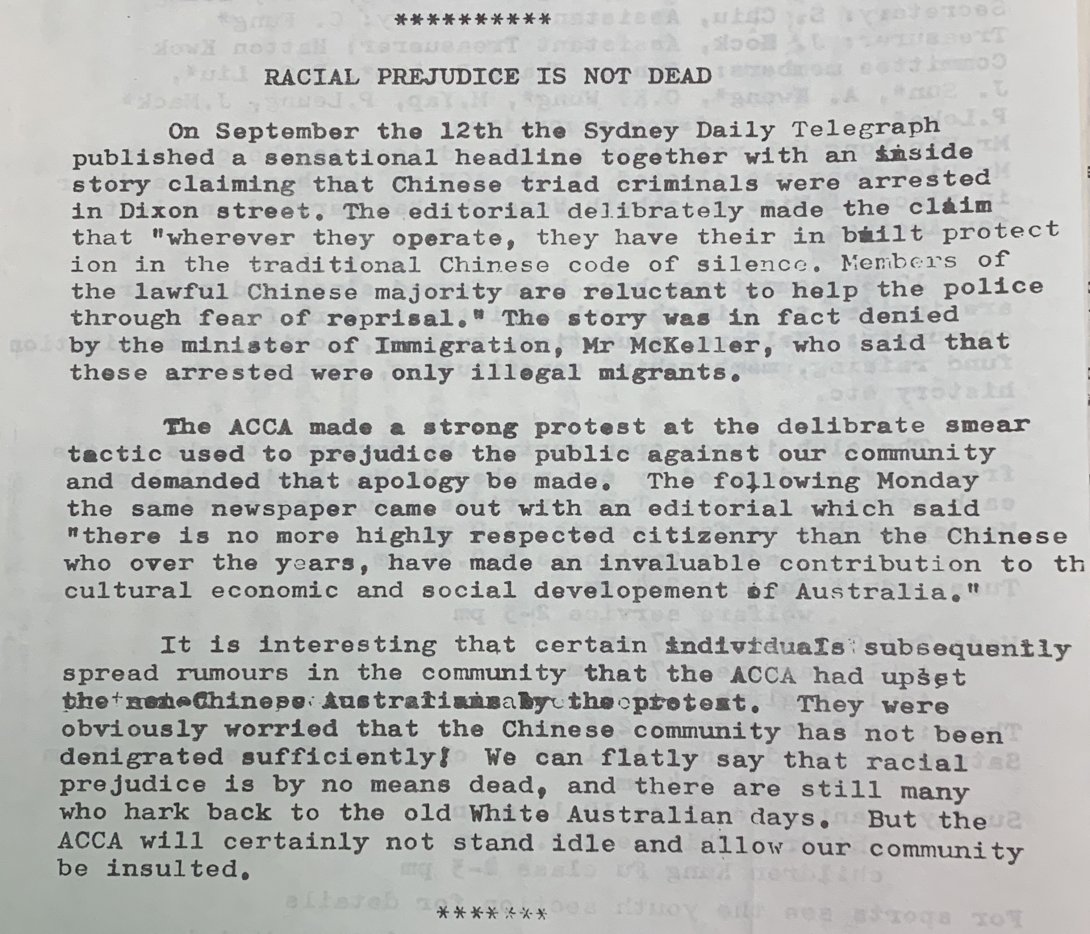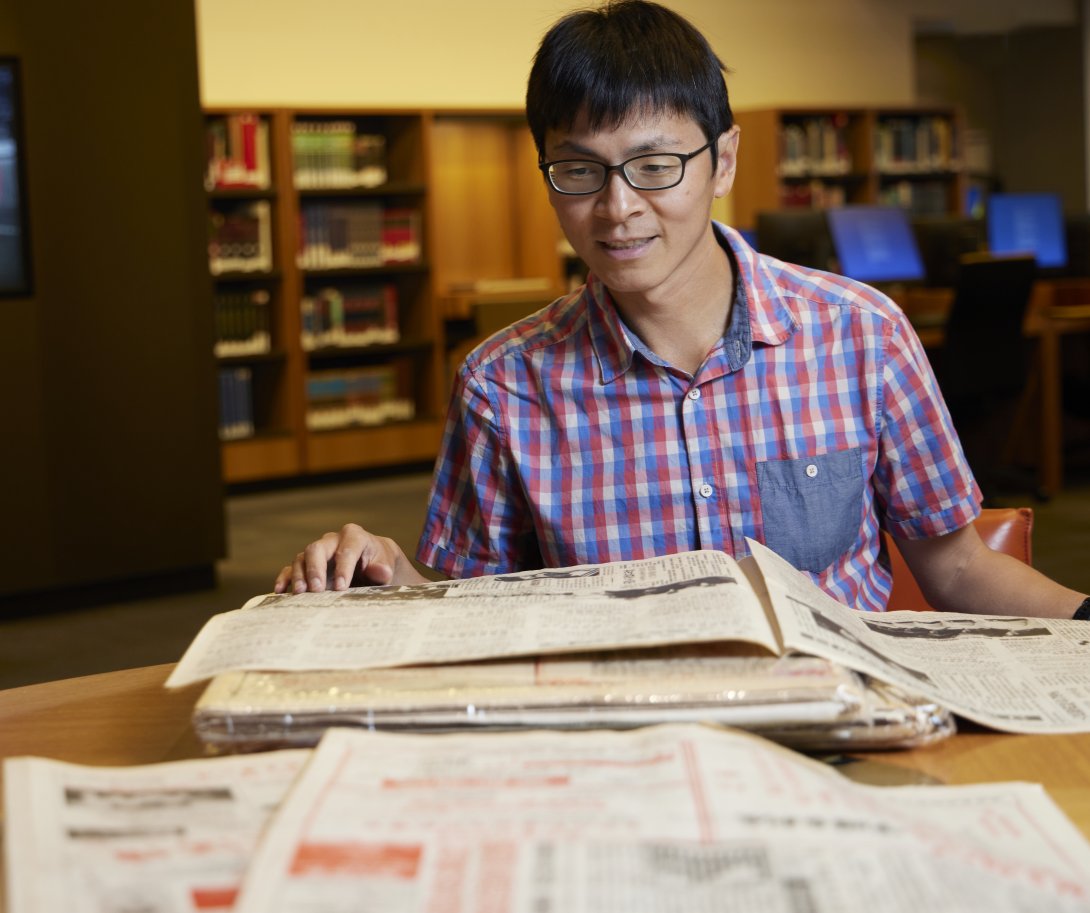Each year since the abolition of the White Australia policy in 1973, there have been thousands of Chinese migrants who chose to make Australia home. Using the Library’s English and Chinese language material, 2023 Asian Study Scholar Dr Yao-Tai Li set out to examine these migrant’s daily experiences, how they were received in Australian society and whether these attitudes have shifted over time.

Shifting asymmetries
Yao-Tai came to the Library to conduct this research as it ‘provides the most complete collection of materials for my project,’ he explained. These included migrant bulletins, newspapers, government publications, and oral history recordings.
To develop ‘a more nuanced understanding of the shifting asymmetries between the receiving society and Chinese migrants in relation to racial discrimination’, he used these materials to examine first-hand accounts and feelings shared by individuals, communities and organisations, as well as formal communications from the government.
‘Tracking the discourses on and experiences about racial discrimination among Chinese diasporic communities in Australia sheds light on whether and how racism has shifted over time, both quantitatively and qualitatively. Examining the subjective feelings and discourses ... over time also offers a more nuanced understanding to the shifting dynamics of racial discrimination.’
Getting the whole picture
This research stems from a very personal place for Yao-Tai, a migrant himself, as he ‘feel[s] resonant with racial discrimination and racism experienced by Chinese migrants’. It also extends his previous work in areas of race, identity politics, discourse analysis and migration, which can be found in numerous academic journals.
‘My earlier publications and ongoing projects are mostly about Chinese migrants’ contemporary experience. I have been wanting to include the historical lens and materials, to make the picture of the Chinese diaspora in Australia more holistic.’

Findings
As well as extensive insight into the daily experiences of Chinese migrants, Yao-Tai has uncovered several surprising things over the course of his research. Among these are the efforts made by Chinese communities within the political sphere, including building networks, generating awareness of issues, and encouraging young immigrants to become more involved.
Other insights include the conflicting values within Australian and Chinese culture, issues of internalised racism, and the presence of both collaboration and tension between Chinese migrants and other minority groups.
One item in particular that sparked Yao-Tai's interest was an article from a 1977 issue of the Australian Chinese Community Newsletter titled ‘Racial Prejudice Is Not Dead’. In response to how the Sydney Daily Telegraph had ‘connected illegal immigrants to Chinese communities (triad criminals) and generated prejudice against the Chinese community’, the newsletter article discussed the positive contributions made by Chinese migrants to Australia’s economy and cultural development to ‘wash off such a racialized stigma.’
‘The story reminds me of the “scapegoat” theory that I learned from listening to [the] oral history files of Mr. Henry Tsang and Ms. Helen Sham-Ho... These two interviewees both mentioned that Chinese migrants often become scapegoats during economic downturns or housing crises.’

The investigation continues
Following his time at the Library, Yao-Tai intends to write an academic article to be presented at an international conference and submitted to an academic journal. His research won’t end there, however, as he plans ‘to continue working on the materials, expanding the scope of materials, and engaging with the public regarding the understudied topic—Chinese diasporic history, their racialized experience and response.’

Take your research further at the Library
Following his time at the Library as an Asian Study Scholar, Yao-Tai has encouraged a few of his colleagues and friends to apply. In particular, he emphasised that despite not being a historian with experience with archival research ‘reading these materials [and] listening to oral histories has broadened my horizon on the possibilities of available data sources and all the “hidden” stories that could be significant to our research!’
He also sung the praises of the ‘National Library’s wonderful staff [who provide] professional assistance in how to access the most relevant historical materials and collections.’
Read more about the National Library’s Fellowship and Scholarship programs.